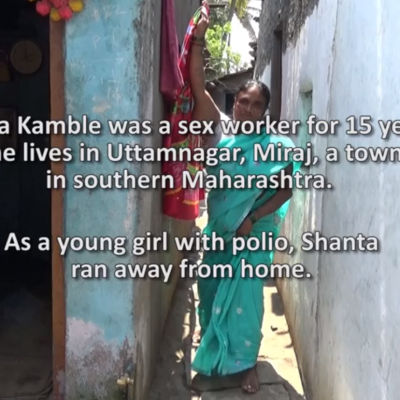Sex Work
Tales delicately yet powerfully draws out the conflict between sex workers and feminism in India,at a time when a lot of feminists thought of prostitution through a SWERF lens[1].
Five sex workers – four women and one man – along with the filmmaker/narrator embark on a journey of storytelling….
Note: Five sex workers – four women and one man – along with the filmmaker/narrator embark on a journey of storytelling. Shohini Ghosh’s Tales of the Night Fairies explores the power of collective organising and resistance while reflecting upon contemporary debates around sex work. The labyrinthine city of Kolkata (Calcutta) forms the backdrop for personal and musical journeys.
For many of us careening to adulthood at the time, these films pushed us to confront our own biases. They asked us to stand in Diane and Mansi’s shoes and ask ourselves, what would we have done? Would we spend one night with a man (Robert Redford, no less) for a million dollars? Would we be able to resist the option that opened up to Mansi? And the truth of it was that this was a difficult question to answer.
It was a million dollar question. Literally. The Hollywood film Indecent Proposal (1993) had actors Demi Moore and Woody Harrelson…
I’ve been a sex worker for over 20 years. I’m a migrant sex worker based in Sydney, Australia but have…
Sex workers also are renowned for being educators – teaching people about safer sex practices and letting them explore their sexual expression in a safe and supportive environment. Seeing a sex worker can assist in one’s rehabilitation, allowing people to rediscover their sexual functioning after an accident and also learn to adapt to new sexual positioning with their new limited mobility.
I’m convinced we’re having the wrong conversation around digital porn. If we really want to have a meaningful conversation around porn, it’s time we stopped talking about its imagined harms. It’s time we started talking about actual harms. It’s time we started talking about the fault lines of consent.
Special Court No. 54 is a hall filled with whizzing ceiling fans. When the magistrate enters or exits, people rise to bow. Lawyers in black coats and white pants or saree/suit, sit at a long desk in plastic chairs a level below the magistrate with a clutch of researchers like myself, and anti-trafficking missionaries who “rescue fallen women”.
Lawrence may have given Elena a world and a voice. But it was she who chose to delve into the unknown world of sexuality. It was she who chose to see the beauty and the richness of pleasure within communities of sex workers, soldiers, the elite, all alike. She alone chose to discern as well as reconcile love, as we commonly seem to know it, with a life in which she is capable of many loves.
Following are some short clips made by Point of View, Mumbai in collaboration with SANGRAM, Sangli about the lives of sex workers living…
Is business work? Can business that involves providing sexual services be understood as work? If work is any mental or physical activity performed for a result, then for the individual performing the activity sex work is work. If work is any activity performed as a means of survival, then sex work is work.
Apart from systematic exclusions faced by individuals, evidently the mandatory use of a biometric-based digital ID has also reshaped the understanding of an individual’s agency and right to bodily autonomy. Gender and sexuality seem to no longer be matters of an individual’s right to privacy. With digitisation, disclosure of one’s gender and sexuality has become a hindrance to accessing one’s rights.
For the two-part interview section of this month’s In Plainspeak, Shikha Aleya spoke to a few individuals who continue to push the boundaries of their work, art, and social norms, and expand the understanding of diversity and sexuality.















